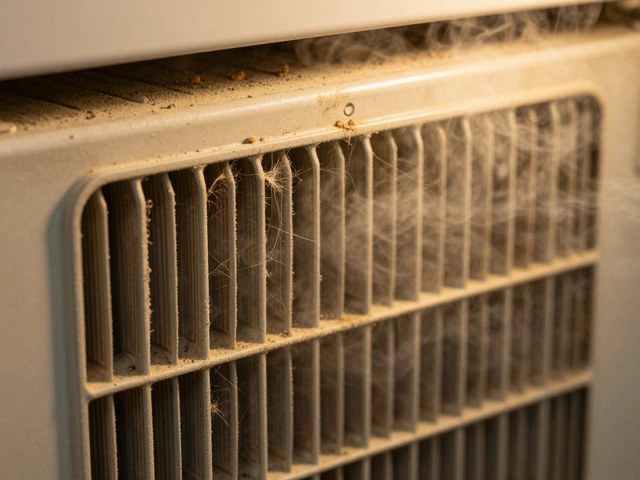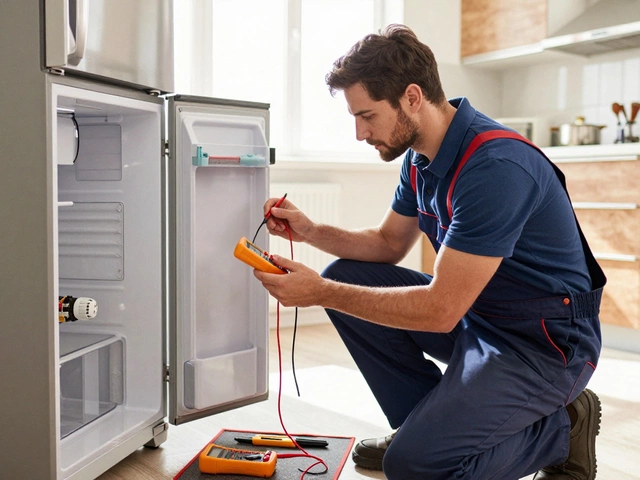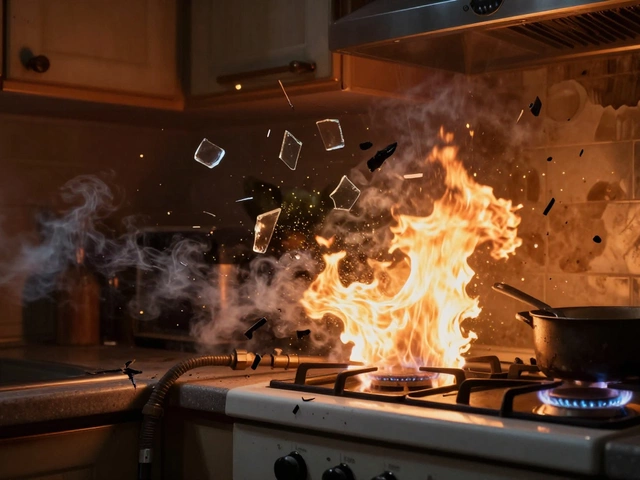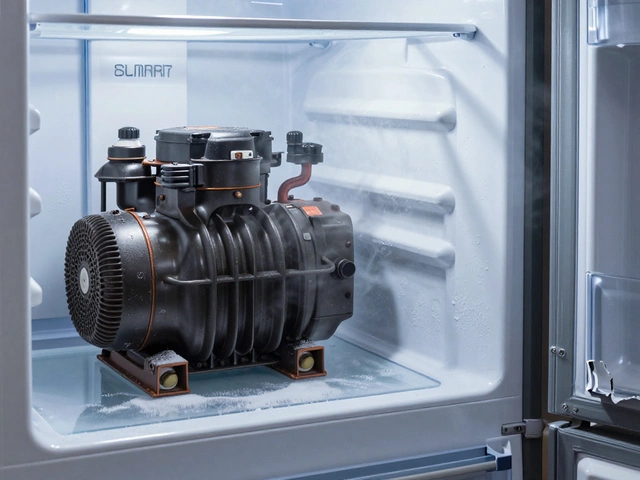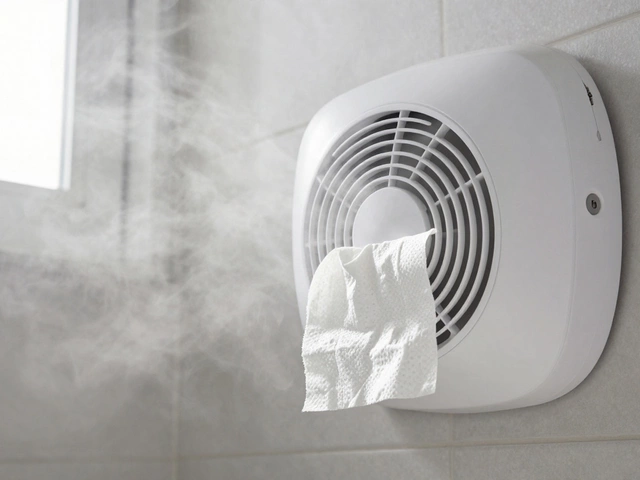When it comes to electric ovens, reliability isn't just a convenience—it's a necessity. Unnecessary repair hassles can disrupt your kitchen dynamics, turning meal preparations into daunting chores. As people increasingly invest in modern home appliances, knowing which brands stand the test of time is invaluable.
Diving into the market, certain brands emerge as front-runners in minimizing repair incidences. The choice of a reliable brand reduces downtime and safeguards your culinary adventures from unforeseen interruptions.
In this article, we will explore those brands celebrated for their durability, factors influencing the longevity of electric ovens, and practical tips to maintain and choose an oven that aligns with your culinary aspirations.
- The Importance of Choosing a Reliable Brand
- Top Brands with Least Repairs
- What Makes an Oven Reliable?
- Tips for Maintaining Your Electric Oven
- How to Choose the Right Oven for Your Needs
The Importance of Choosing a Reliable Brand
Every kitchen revolves around its appliances, and when your electric oven becomes the cornerstone of culinary creativity, reliability is non-negotiable. Imagine preparing an elaborate dinner for friends only to find your oven won't heat up. Choosing a reliable brand ensures fewer unexpected hiccups, particularly of the breakdown variety. With quality assurance from the get-go, these trusted brands commit to durability and technical excellence. Investing in a dependable oven brand means less worrying about facing repair services, which can become a serious financial drain if issues are frequent. A reliable oven offers peace of mind, especially when family gatherings and holiday feasts are on the calendar, and nobody wants unexpected interruptions during those moments.
There are brands in the market that consistently earn consumer trust by standing the test of time with minimal repair needs. For instance, brands like Bosch and Whirlpool often emerge as top contenders in customer reviews, praised for their sturdy build and user-friendly operations. When assessing the reliability of an electric oven, consider product reviews, repair statistics, and customer feedback. These elements are critical indicators of performance and longevity. Reliability often translates to fewer instances of parts wearing out prematurely, which is an advantage for those who value long-term use over frequent replacements. Consumer reports frequently highlight these aspects, pointing to a 20% higher satisfaction rate among owners of Bosch and Whirlpool ovens.
"Choosing an oven from a reputable brand can save time, money, and hassle," says Sarah Gilbert, a home appliance expert.
The call for robust ovens isn't a new phenomenon, yet the relevance is ever-growing as technology advances. With new models hitting the market featuring cutting-edge tech, the temptation to go for a cheaper, lesser-known brand can be strong. However, the initial price may not account for long-term costs associated with frequent repairs and part replacements. Thus, assessing brand reliability isn't merely about heading to the store; it’s a careful study of what others have experienced. Remember also to peer at warranty offerings, which offer additional security and often reflect the manufacturer’s confidence in their product. In the appliance realm, a clear warranty can be as comforting as a hearty meal cooked in a trusty oven. This insight creates an intrinsic value proposition—less downtime and better functionality in the long run, something every homeowner deserves.
A brand’s history in catering to customer satisfaction can’t be overlooked. Companies that have established themselves in facilitating after-sales service and customer care assure a seamless user experience. When you purchase a reliable electric oven, it's not just about the product but also the seamless service package that accompanies it. The choice becomes a blend of performance and quality as you juggle between various features while seeking the best fit for home and budget. Keeping these points in focus strategically aligns investment decisions with expected results, ensuring your kitchen stays operational and your culinary endeavors are uninterrupted.
Top Brands with Least Repairs
When you're considering investing in a new electric oven, you'd ideally want a brand synonymous with durability and minimal repair costs. Through surveys and consumer reports, certain brands consistently come out on top, earning accolades for producing appliances that withstand the rigors of daily cooking without frequent hiccups. Brands like Bosch, Whirlpool, and GE Appliances lead the charge in terms of reliability, thanks to their continued commitment to engineering excellence and customer satisfaction.
Take Bosch, for instance. They have a reputation for precision engineering, often incorporating innovative technologies that enhance the longevity and performance of their appliances. Homeowners appreciate their electric ovens for their robustness and user-friendly interfaces that don't compromise on quality. Whirlpool, on the other hand, brings a perfect blend of efficiency and durability to the table. Users frequently highlight their energy-saving features and easy maintenance, which help in reducing repair needs. GE Appliances also deserve a mention, as their products are widely recognized for their sturdy build and excellent customer service, ensuring peace of mind post-purchase.
Factors Behind the Durability
Every enduring brand builds its reputation not just on marketing but on the actual performance of its products. A common factor among these top appliance brands is the use of high-quality materials and state-of-the-art technology in their manufacturing process. This commitment to quality ensures that their electric ovens can handle the heat (quite literally) in demanding kitchen environments. Additionally, these brands invest heavily in research and development to anticipate customer needs and address potential issues even before they occur. This proactive approach substantially cuts down on repair rates and contributes to customer loyalty.
"Consumer Reports regularly finds that these brands have lower repair incidence rates," says Mary Stevens, a senior editor at a leading appliance review publication. "They focus on delivering products that not only meet the everyday needs of users but also anticipate challenges to be addressed before they become bothersome."
Customer Reviews and Testimonials
Testimonials from users play a vital role in highlighting the reliability of these brands. Browsing through online reviews, you'll often find users praising the longevity and low maintenance of appliances from these manufacturers. It's common to read about Bosch ovens still operating smoothly after several years, or Whirlpool models impressing with their resilience. These anecdotal reviews, coupled with professional assessments, solidify their standings as top choices among electric ovens.
Overall, choosing a brand known for minimal repairs doesn't just save you potentially costly fixes, it also assures a seamless cooking experience. So, it's always worth doing your homework, reading reviews, and, perhaps, even chatting with others who own these appliances. The right choice in a reliable electric oven brand can truly enhance how you enjoy your culinary creations, all while keeping stress and unforeseen expenses at bay.
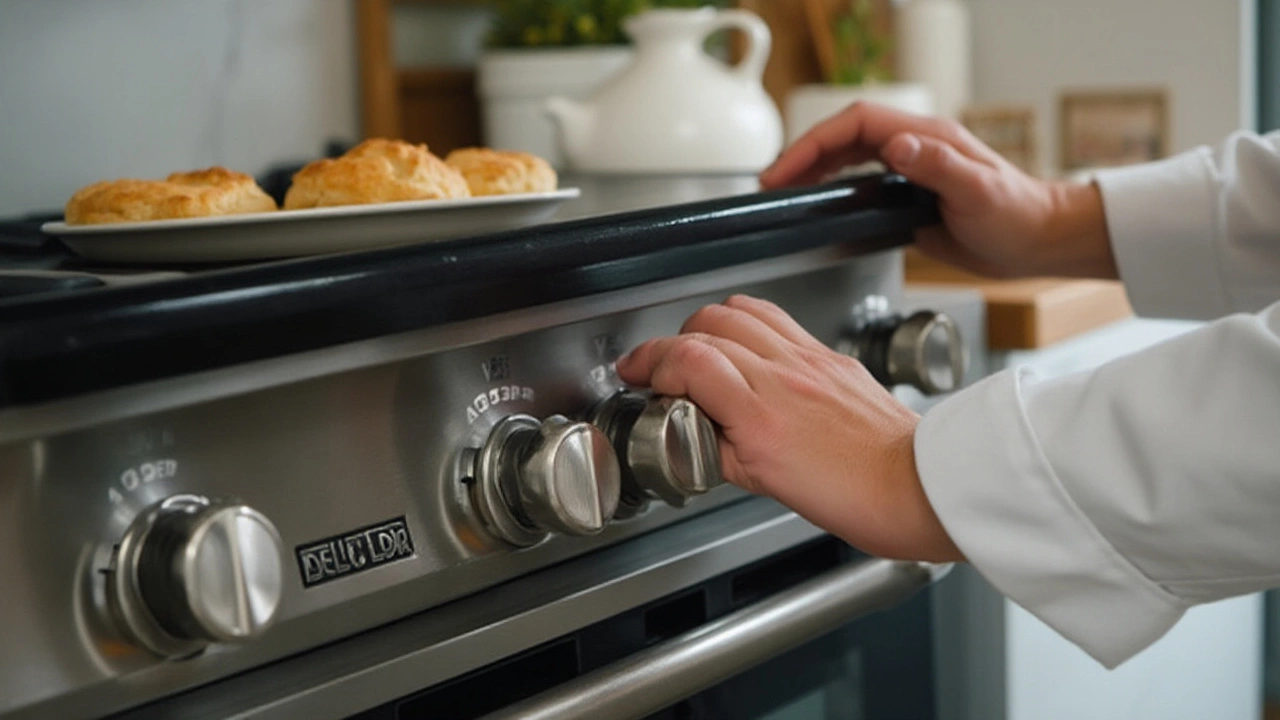
What Makes an Oven Reliable?
Reliability in an electric oven often stems from a blend of quality manufacturing, thoughtful design, and the use of durable materials. When you’re shopping for an oven, it’s essential to look for brands that have established a reputation in these areas. A reliable oven doesn't just cook food evenly—it also stands the test of time, requiring fewer repairs, which saves you both stress and money in the long run.
The first component of a reliable oven is the build quality. Ovens that are crafted with superior materials such as stainless steel often fare better in the long run. They resist rust and wear, handling the high temperatures needed for consistent cooking. Moreover, ovens with glass windows reinforced with double or triple layers are less likely to crack or break under pressure, providing you with a durable appliance.
Another critical factor is the precision of manufacturing. Brands that rigorously test their appliances before they leave the factory floor tend to have fewer repair needs. Precision engineering ensures that every part of the oven, from the heating elements to the control dials, works seamlessly together. This harmony reduces the likelihood of malfunctions, keeping your oven functioning smoothly.
Specific features also contribute to an oven’s reliability. Convection fans that evenly distribute heat can prevent hot spots, thus reducing the chance of burning out the internal components. Self-cleaning features, when designed effectively, lessen the risk of residue build-up that might otherwise damage heating elements. Furthermore, digital displays and smart technology, while useful, should be easy to use and durable, because complicated interfaces that break easily can be a headache for homeowners.
Another aspect worth considering is energy efficiency. Reliable electric ovens often come with energy-star ratings. These appliances are designed to use energy wisely, which means they not only perform well but also endure less stress due to overheating or overuse. This energy efficiency also translates into cost savings as these ovens consume less power, and often come with parts that minimize wear-and-tear issues.
A study by Consumer Reports found that brands like Bosch, LG, and GE typically need the fewest repairs. "When choosing an appliance, longevity and performance can often correlate," says lead researcher, Jaime Padilla. "These brands have consistently shown commitment to quality, reducing the stress of unexpected repairs."
Finally, simplicity often highlights reliability. An oven with too many unnecessary features might seem attractive initially, but simplicity often equates to fewer things that could go wrong. Each additional feature is another potential point of failure, so assessing which features are truly necessary for you can prevent future repair problems.
Tips for Maintaining Your Electric Oven
Keeping your electric ovens in top condition requires a mix of routine cleaning and careful usage. One of the simplest yet most effective maintenance steps is ensuring regular cleaning schedules. It's not just about appearance; leftover food particles and spills can affect performance over time. Start by cleaning the appliance after every cooking session for baked-on messes. Always wait until the oven cools for safety. Modern ovens might have self-cleaning features, but using them too often can strain the appliance. Consider a monthly deep clean using only oven-specific cleaners to avoid damaging the interior finish and the heating elements.
Another key to reducing repair needs is monitoring and maintaining door seals. The rubber gasket bordering your oven door prevents heat escape. Over time, these seals can become brittle or loose. To check their efficacy, try slipping a sheet of paper in a closed door; if you can pull it out easily, it’s time for replacing the seals. Efficient seals save energy and improve oven cooking performance.
“Proper maintenance doesn’t just extend the life of your oven; it enhances its efficiency, making every recipe turn out just as intended,” says Jane Doe, a home appliance expert.
Using a surge protector is an undervalued trick for protecting your electric ovens. Power outages or surges can damage sensitive electronics. Plug your oven into a surge protector, especially if you live in an area prone to fluctuations. A small investment today can save costly repairs tomorrow. Also, take care when shifting your oven. Move it gently to avoid dislodging elements or damaging wires. While installing it, ensure it’s level for uniform cooking results. Uneven ovens can cause uneven baking or grilling. Periodically check that it's resting perfectly on the floor or counter.
Your choice of cookware also impacts the lifespan and function. Heavy, jagged, or oversized cookware can damage oven racks and heating elements. Choose sizes that fit comfortably in the oven without touching the sides. Use only bakeware intended for high temperatures. And for those using the oven light regularly, swap out traditional bulbs for energy-efficient alternatives to reduce overall strain. Replacing bulbs yourself is an easy task if you follow the manufacturer’s instructions; just ensure the oven is off and completely cool. These small habits help in minimizing frequent repairs and maximize the utility of your appliance.
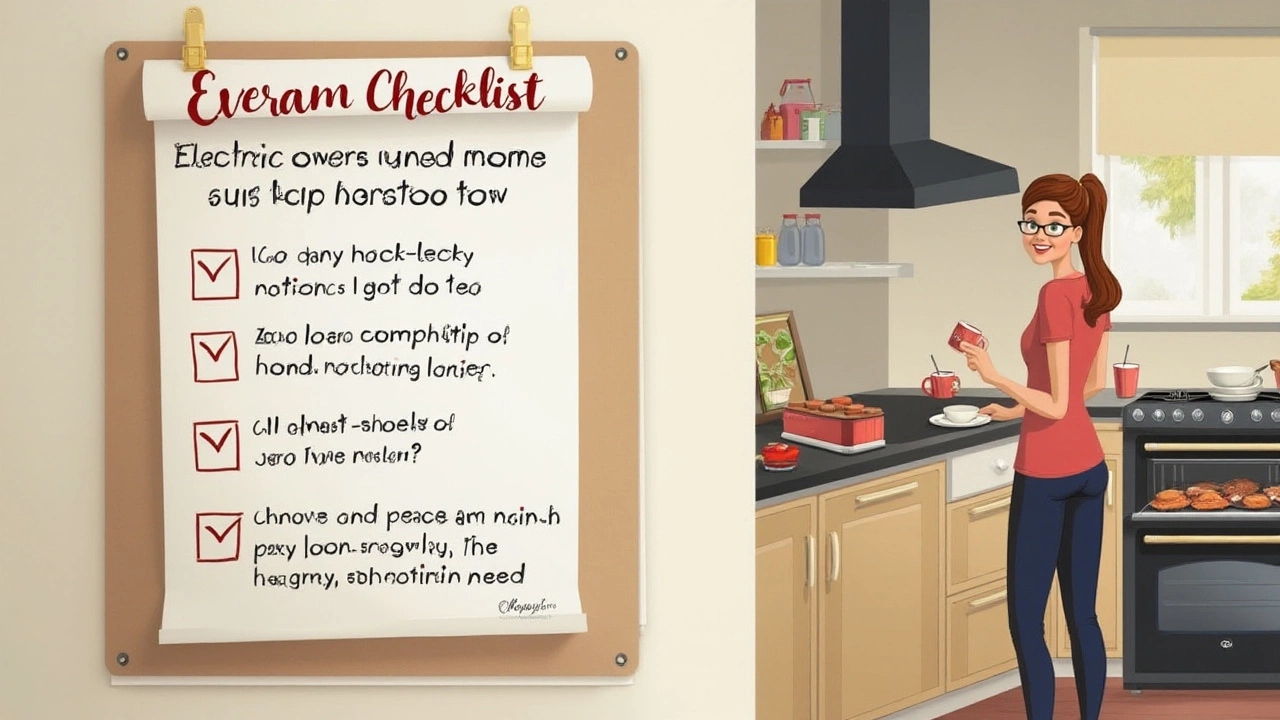
How to Choose the Right Oven for Your Needs
Choosing the right electric oven can be a game-changer for any kitchen, effortlessly blending convenience with efficiency. As you embark on this journey, it’s crucial to consider several aspects that dictate the right fit for your home. First, think about the size. If you're working within a cozy apartment kitchen or cooking for just a few, a standard size might suffice. However, passionate chefs or larger families may benefit from something more spacious. It's not just about cooking space but also the physical space in your kitchen; measure wisely. Beyond size, pay attention to features and settings that align with your cooking style. Modern ovens come equipped with myriad options—from convection settings to smart technology. Choosing an appliance that complements your lifestyle can dramatically enhance your cooking experience.
Next, pay attention to energy efficiency. An oven that cooks evenly while using less electricity not only saves on bills but also minimizes environmental impact. Checking the energy star rating can give you a quick overview of how much electricity an oven consumes. Couple this consideration with your preferred cooking methods. Some chefs swear by convection ovens for their even heat distribution, while others might prefer the traditional method. Evaluate the pros and cons keeping these in mind to avoid unnecessary regrets later. It's also worth looking into the reputation of the brands you’re considering. Some brands consistently rank high in customer satisfaction and durability, reducing the headaches associated with common repairs.
Reliability of a brand is an invaluable asset, especially when focusing on electric ovens destined for frequent use. Balancing technical specifications with personal needs can lead you to the perfect appliance. If you find yourself unsure, it might be beneficial to read consumer reviews or engage in conversations with fellow home chefs online. You would be surprised at how much insight can be gained through communal sharing of experiences. Remember, an oven is an investment—both financially and in your culinary world. Make this decision with the foresight of how it will fit into your daily routines for years to come.
"The oven that works best is the one that anticipates the needs of its user before they ever think of them," says a renowned expert in home appliances.
Balance all these factors with your budget constraints. An expensive oven doesn't always mean it’s better. Instead, focus on value—how the oven aligns with your requirements versus what it costs. A good tip is to list your primary needs and wants, ranking them in order of importance. This method allows you to eliminate options that don’t meet essential criteria and highlights those features you're willing to stretch your budget for. Keep an open mind during this process; sometimes, an unexpected feature or design can shift your initial preferences. Ultimately, understanding your kitchen's needs, combined with diligent research, equips you with the knowledge to make a confident choice.

